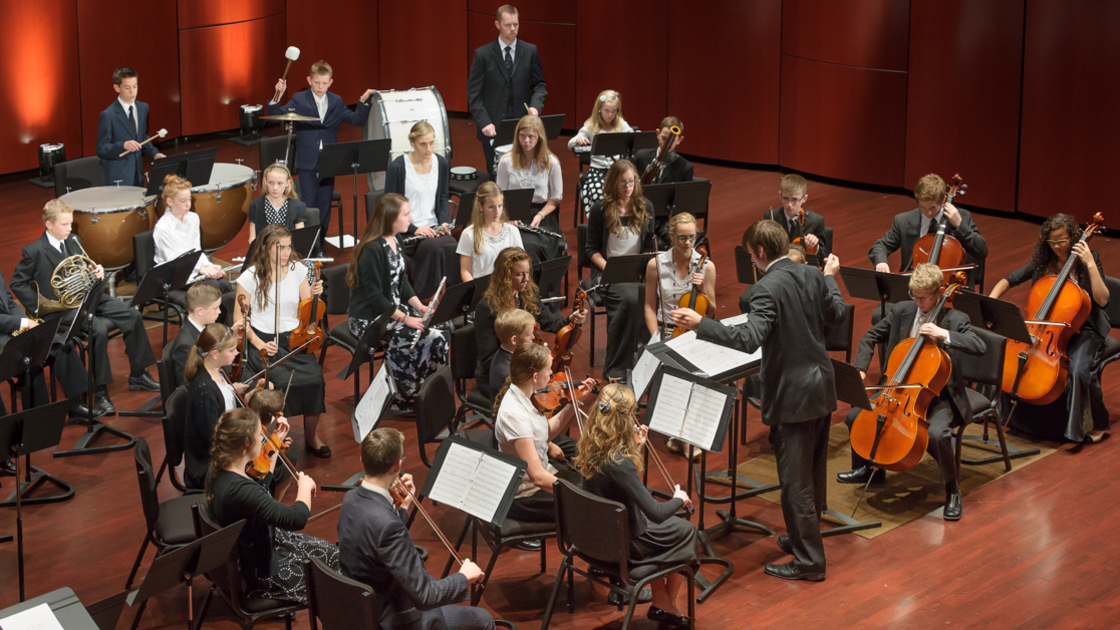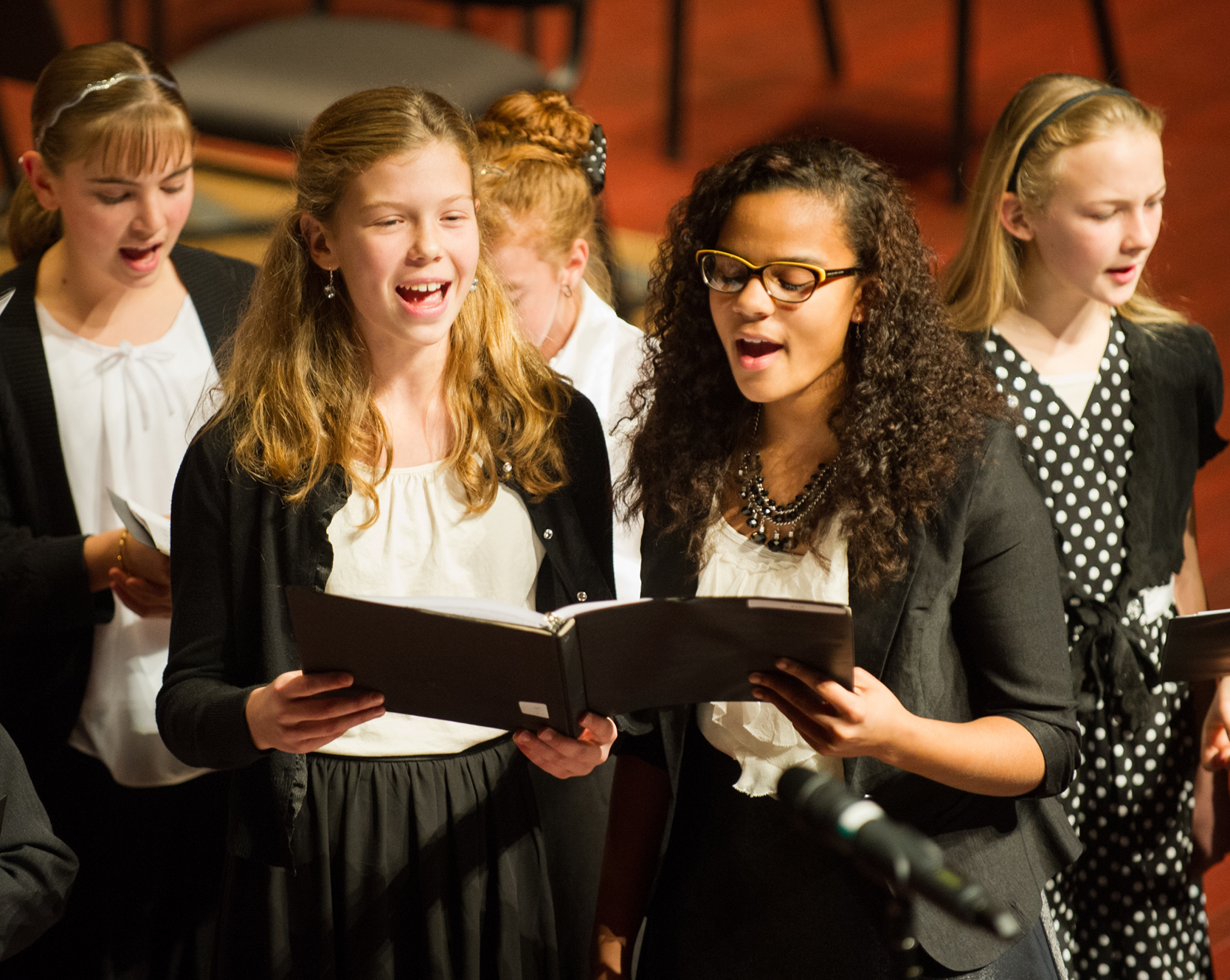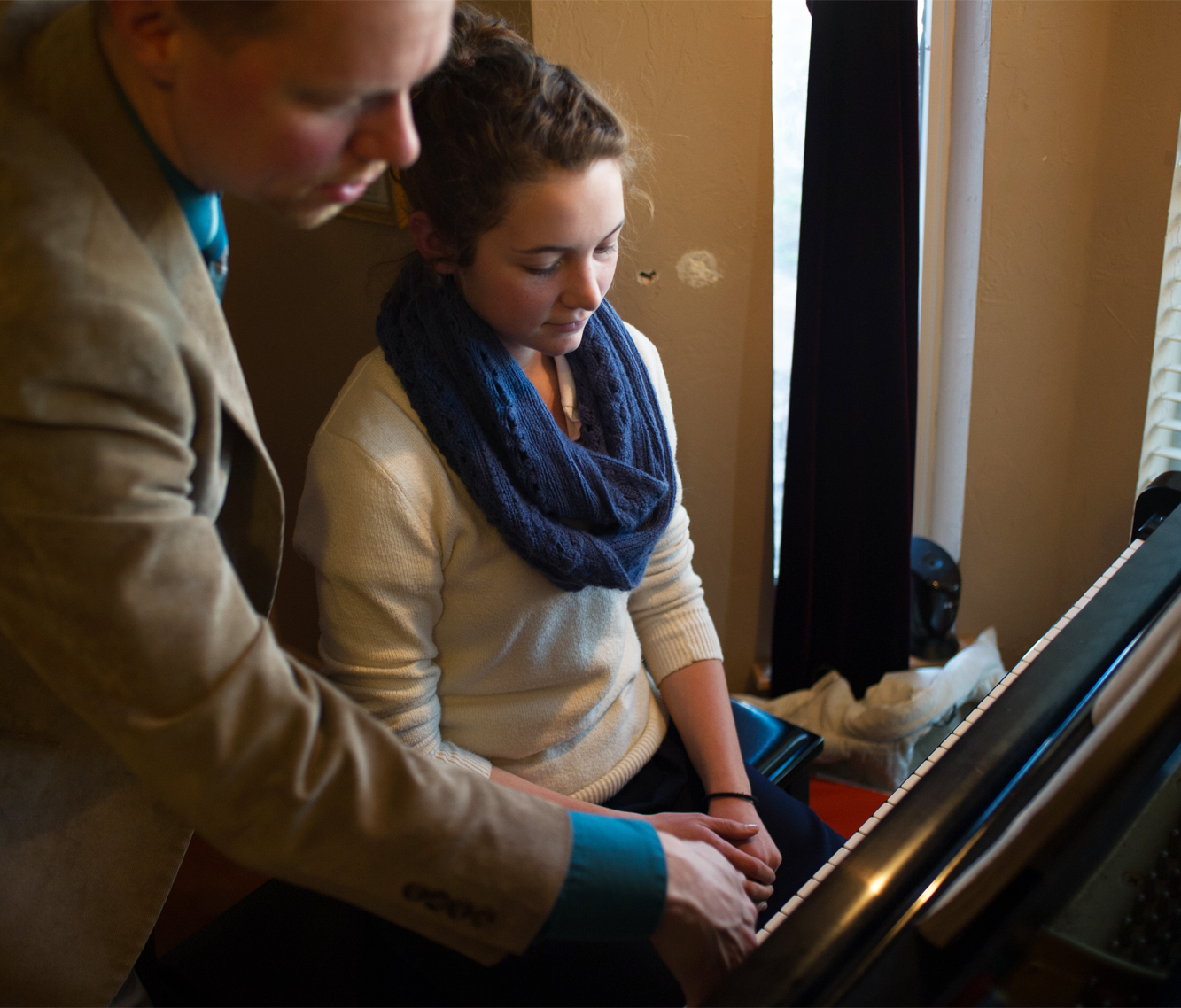“What is the best way to educate my child in music?”
As the music director for the Philadelphia Church of God’s educational institutions, I hear versions of this question frequently. Whether you are a homeschooling parent with little-to-no musical training or a parent of a child whose school has cut its music program, here are some ways to fill this need in your child’s educational journey and character enrichment.
First, it excites me that parents are asking this. It shows they realize the importance of music in childhood development. I could cite study after study and supply quote after quote of why music has spiritual, emotional, mental and physical benefits for all of us—children especially (that it is in fact a need)—and how the modern trend in Western education of sacrificing this “extracurricular” activity on the altar of mathematical and scientific achievement is counterproductive.
The parents who ask the question are taking a cue from the pcg’s emphasis on music: Imperial Academy’s daily music classes (starting from kindergarten), its orchestral and choral programs, and its promotion of the private study component through semiannual recitals all highlight the indispensable value of a music education. It champions the discipline and character required in the artistic fields where perfection is the aim.
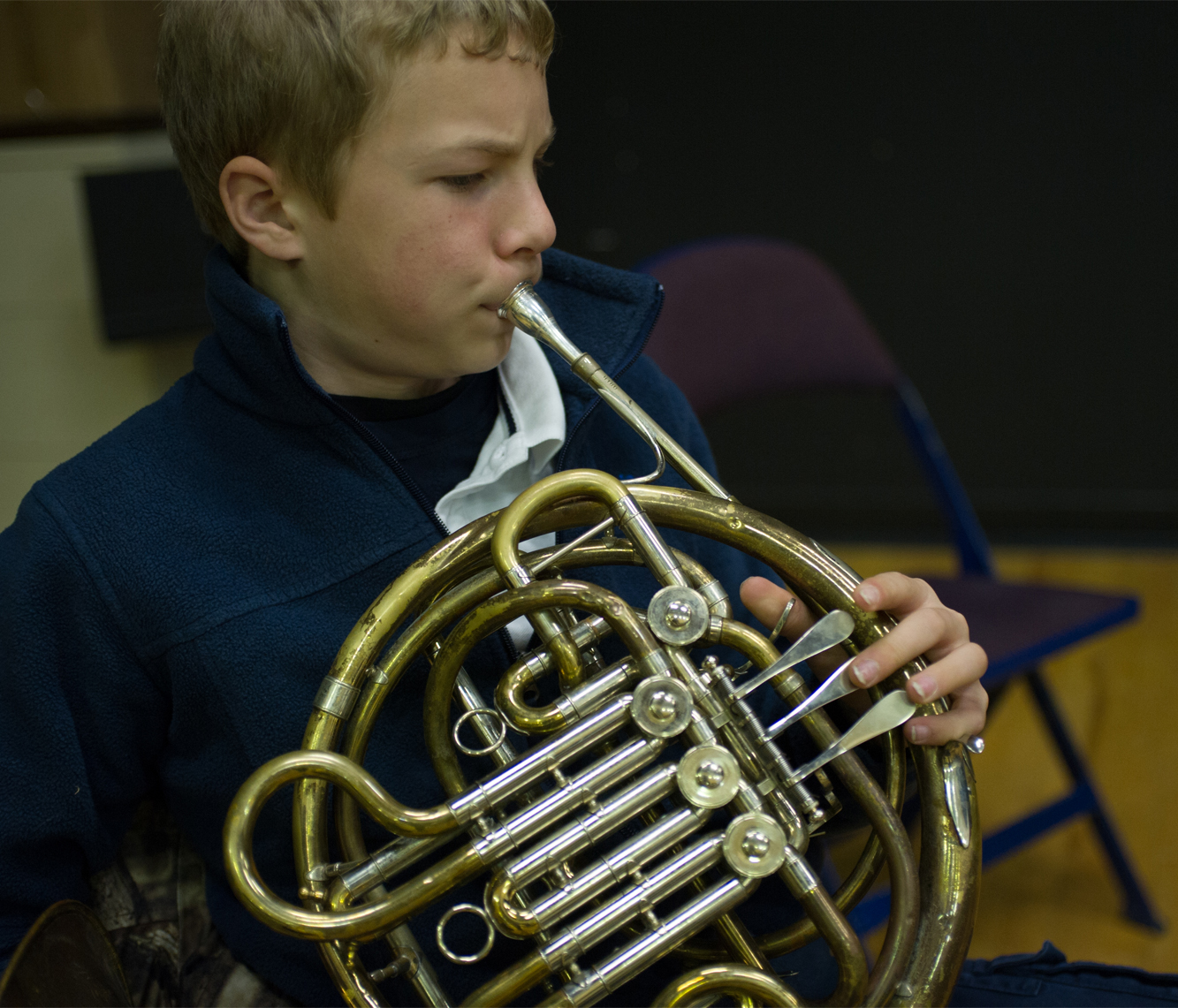
So I—along with my two music faculty colleagues here at Herbert W. Armstrong College: Mark Jenkins and my wife, Paula—would like to address two aspects of your child’s music education that you as parents can provide for your children.
‘But I Don’t Speak ‘Music’’
Before we get to these two areas, let me clarify this. Parents: Your musical aptitude does not have to be a factor. Granted, the more music education you have, the more you can help.
Think of it this way: Music is a language. If a child grows up in a house where French is spoken, chances are the child will speak French. This is why some people think musical talent is mostly genetic; in the homes where “music” is spoken, the children have a stronger proclivity to pick up the nuances of the musical languages. But that doesn’t mean the only people who can speak French are those who grow up in a French home. Many people from all over the world learn the language—perhaps in spite of their parents’ inability to pronounce anything foreign. Music is the same.
Area 1: General Music Education
At Imperial Academy, we teach the kindergarteners through second graders a general music education. This introduces them to the basics of rhythm, pitch, tempo, dynamics, the instruments of the orchestra and the major composers. How can you provide this for your child? Here are a few suggestions.
Kindermusik: In the United States, children up to age 7 can enroll in a local program—a classroom environment where they can be introduced to musical concepts. For more, see kindermusik.com.
Websites: The Internet is a cornucopia of music education, opportunities to explore great music and the basics of the musical language. In addition to a simple Google search, parents are usually pleased to find out that major symphony orchestras have created websites geared directly to children and music education. The San Francisco Symphony (at sfskids.org) and the Dallas Symphony (at dsokids.org) are two great examples. They have interactive activities and games to teach the basics of music reading, music history and appreciation, the sounds of the orchestra and other stimulating offerings for youth.
Apps: If you own a tablet or mobile device, there are numerous apps that have been created to drill note-reading and to introduce young people to how to listen to music. For my piano students, I bought an inexpensive app that drills the notes of treble and bass clef. It’s called Learn Notes, and it requires the user to identify the note on the staff by playing the correct key on the keyboard at the bottom of the screen. Flashnote Derby is a similar alternative that incorporates a game for younger children. For a more general music education, I use an app called My First Classical Music App. Through interactive touch-screen technology, users can learn about how prevalent music is in our world and who the greatest composers of music were in the past few centuries. It teaches each major instrument, showing the different sounds they make. And each section is accompanied with great recordings of major works in the classical repertoire that demonstrate representative examples of each composer and instrument.
Field trips: One of the best ways to start teaching your children music is to expose them to a lot of different kinds of music and to do this a lot. Modern technology makes this much easier. In addition, this exposure should include going to live performances. Some local libraries may offer musical experiences. Many major orchestras hold annual or semiannual free concerts (usually during the day) where they invite only school children to attend. It is a free public service, and homeschooling parents and homeschooling organizations are usually permitted to attend these concerts geared directly at teaching children about the orchestra.
Area 2: Learning an Instrument
Here are a list of frequently asked questions I get from parents interested in starting their children on a musical instrument.
‘How young should my child start?’
History is full of examples of great musicians who started either as toddlers or as older children. Studies have indicated that—based on when the brain wires itself for certain activities—there is an age after which exposure to music education is much less effective. This is estimated to be just before the teenage years. This does not mean a teenager cannot start an instrument. I’m speaking more of general exposure to music and basic music education; this should happen before age 12.
As far as how young is too young, parents are usually the best judges of this, based on the child’s cognitive level, motor-skill development and attention span.
As a piano teacher for over two decades, I usually recommend parents wait till the child can identify by sight the letters of the alphabet. That’s just a broad suggestion, and a few are able to jump in earlier and excel.
‘Which instrument is best?’
Many are certain piano is the best instrument to start a child. This isn’t necessarily true, but learning piano first certainly has its advantages: The child learns the visual, geographic aspect of pitches (with the layout of the keyboard). Learning piano also requires the student to learn how to read both treble and bass clefs. Because the piano can play more than one note at a time, it practically teaches a basic understanding of harmony, not to mention the physical coordination required to do several things at once.
Piano has its limitations too. A fret-less stringed instrument (like a violin or cello) requires the student to cultivate sensitivities toward tuning. The piano’s pitches being divided into 88 equally tempered tones doesn’t require the same of the developing pianist. Of course, this skill can be acquired in other ways.
Our students at IA begin with a semester of recorder and a semester of strings. A recorder is a good introduction to basic principles for a wind instrument and can be purchased new for about $5. Our students also receive basic percussion training. Vic Firth’s website has an excellent video series explaining how to play drum rudiments: vicfirth.com/education/rudiments.php. Your child can learn these with a drum or a practice pad, and learning just the first rudiment in each category is fine.
Many of our younger students also study piano or violin privately. Beginning on either piano or violin (or similar instrument) can prepare any student for great musical achievements. When it is time for your child to begin a musical instrument, some instruments may simply be too big: the harp, trombone, bassoon and other large instruments can be started later, after a student has learned a related instrument earlier on. Harp teachers recommend the basics of piano and note-reading be sufficiently ingrained when the child is younger.
A student wanting to play a large wind instrument can start on a related smaller instrument. Trumpet is a typical starting instrument on the brass side, preparing many players for French horn, tuba and other instruments later. Clarinet is the usual starting instrument for a woodwind player.
Some may wonder if certain students are destined to play certain instruments. The famous Itzhak Perlman says he played violin as a child because they had a violin. Music is the language the child is learning to speak; the instrument is merely the vehicle. Still, some feel drawn to a particular instrument over others. We all have different personalities and physical characteristics that are more suited for different kinds of instruments. For a singer the body is the instrument, so a person’s physical and aural capacity factors a great deal into whether or not he or she will be an artistically successful singer. Beyond that, however, it usually just boils down to work, work and work. Perfect practice makes perfect.
‘Since pianos are expensive, is an electric keyboard good enough?’
No. I have been known to tell a parent that, if they already had a keyboard (with weighted action) in the home and not a piano yet, that I would be willing to start their child on lessons, with the understanding that in 6 to 12 months—if the child started progressing in a committed way—that they must acquire a real, acoustic piano. Many excellent teachers simply will not teach a student who doesn’t have regular access to a real piano.
Most keyboards produce a sampled sound, meaning someone else recorded a piano at that particular key speed and when your child hits that button, the pre-recorded sound comes out. The student then is not getting a truly accurate sound response based on what action they are taking.
More importantly, while the best, most expensive keyboards attempt to imitate the touch response of a keyboard, none of them do it as well as even the cheapest upright piano. If the student presses the keys too lightly, uses a poor hand position, pedals incorrectly, etc., the keyboard will give an entirely different response than a real piano would, masking the fact that the student has not learned the correct technique. This is immediately detectable by watching the hand positions of students who do not regularly practice on a real piano.
‘How do I find a good local teacher?’
Here’s a helpful hint: Music communities are small. No matter what major metropolitan area it is, there are a handful of competent, trustworthy musicians who all know each other. The best way to find them is usually at an educational institution. The easiest way to get connected to the music teacher scene is to contact the local university’s music department. Even if you are not interested in having your child go there to take lessons, these professors usually know fellow teachers and graduate students who are just starting their own teaching careers. Chances are they will even know someone who lives near you. The music business is basically a referral business.
Of course, you want to find the finest teacher you can. How do you do this?
These days, colleges and universities usually put the biographies of their music faculty on their websites. You can quickly tell from these which universities are proud of their faculty members because of their performing credentials, and which are proud of their faculty members because of their teaching. The teacher should have both abilities, but sometimes universities recruit students because a famous concert pianist is on the faculty; the pianist is rarely there to give regular lessons, and the student is pawned off on a less-experienced assistant.
If a teacher’s biography boasts of all the places the teacher has performed, but nothing about their teaching career, that’s probably a good enough reason to not contact them. If the biography indicates that the teacher still frequently performs and tours, that might also indicate that the teacher may not be present frequently enough to provide the consistency for a young student.
On the other hand, if a teacher’s biography boasts of his or her students’ accomplishments, that’s a wonderful lead. Since a teacher’s credentials are really the fruits of his or her teaching, this is someone to seek out.
Once you contact the teacher, if he or she requests an audition, an interview or a consultation lesson, this is a good sign. You want them to be as selective about taking students as you are about finding a teacher.
At the interview, ask the teacher how many performance opportunities he or she has for students. Committed teachers usually have regular recitals (annually, semiannually or even more frequently). Perhaps they have a studio class—a weekly performance opportunity for all the students to play for each other. These are invaluable opportunities in a child’s musical development. Performing is nerve-wracking for so many people because they don’t do it enough. If students are always under the pressure of performing in front of a group of people, they will excel so much more. Music is intended to be performed—shared!
You should also let the teacher know how committed you are to his or her program, and to working your child and pushing them to excel. The teacher will greatly appreciate this. Some in this day and age might assume you want lessons for your child “for fun.” Music is fun. The fun comes from the hard work of stretching yourself, pushing yourself past what you thought you could achieve, and making sounds you never dreamed possible. That is fun!
This brings up another question:
‘How much should I have to push my child?’
Parents may wonder if they always have to hound their children to practice, then maybe music isn’t meant for them. Face it: Your children have human nature. Even when we like an activity, we still shy away from hard work and the laborious process involved. Don’t mistake lazy human nature for disinterest in the musical field.
Our children have days when they don’t want to go to school and work as they should, but that doesn’t mean we pull them out of school. This is their job. We told our children that their music lessons and practices are part of their daily “job,” and that when they are “on the clock,” they will do it. This, at the very least, builds discipline and strength of character.
‘How involved should I be?’
As a young teacher, I noticed that the students whose parents were more involved in the lessons were the students who grew more quickly. This concept was confirmed when I had my own children, and we noticed—from week to week—a direct correlation between our children’s musical growth and our involvement in their lessons and daily practicing.
Some parents drop their children off for lessons and pick them up when it’s done. During the week, these same parents tell their children to practice, set the timer, and expect the children are getting better. This is fiction. Children—even teenagers and young adults—don’t know how to practice unless someone teaches them. Children need nearly daily instruction. No matter which teacher you hire for your child to see weekly, you are the daily instructor. When you attend the lessons, you know the weekly goals and what to require of them each day.
‘How much should I expect to pay for private lessons?’
Since the economic climate of each area varies, it is difficult to answer this question too concretely. I suggest shopping around and discerning an average fee for your area. The principle that you get what you pay for usually applies. Free lessons will give you little to no value. Super cheap lessons are not much better. Teachers who charge less than the average—though it might sound like a bargain—are not putting a high enough value on what they have to offer. This should be considered in the screening process. Sometimes, if you are unsure you want to make this kind of investment (you’d like to gauge how much interest your child actually has), you may find a local music program that offers group lessons. This usually cuts the fee down and gives you the opportunity to assess how far you want to go in this area.
‘Should my child participate in an ensemble?’
Playing or singing in an ensemble regularly can have enormous benefits for a child musically. For those in a homeschooling situation, this can be tricky. It’s not a requirement, so do not fret if there are no opportunities for your child. Some areas, however, have local youth orchestras or choirs that can build this substantial and satisfying aspect of musicianship in your child. Though there may be times when you cannot participate fully due to Sabbath commitments or because the program is associated with a pagan holiday, ensembles will often be understanding of those instances if you show a strong commitment to the program the rest of the year.
‘Should my child take voice lessons?’
If your child loves to sing, great! All children should sing. If your child shows a strong proclivity toward it, don’t just assume that voice lessons are the answer.
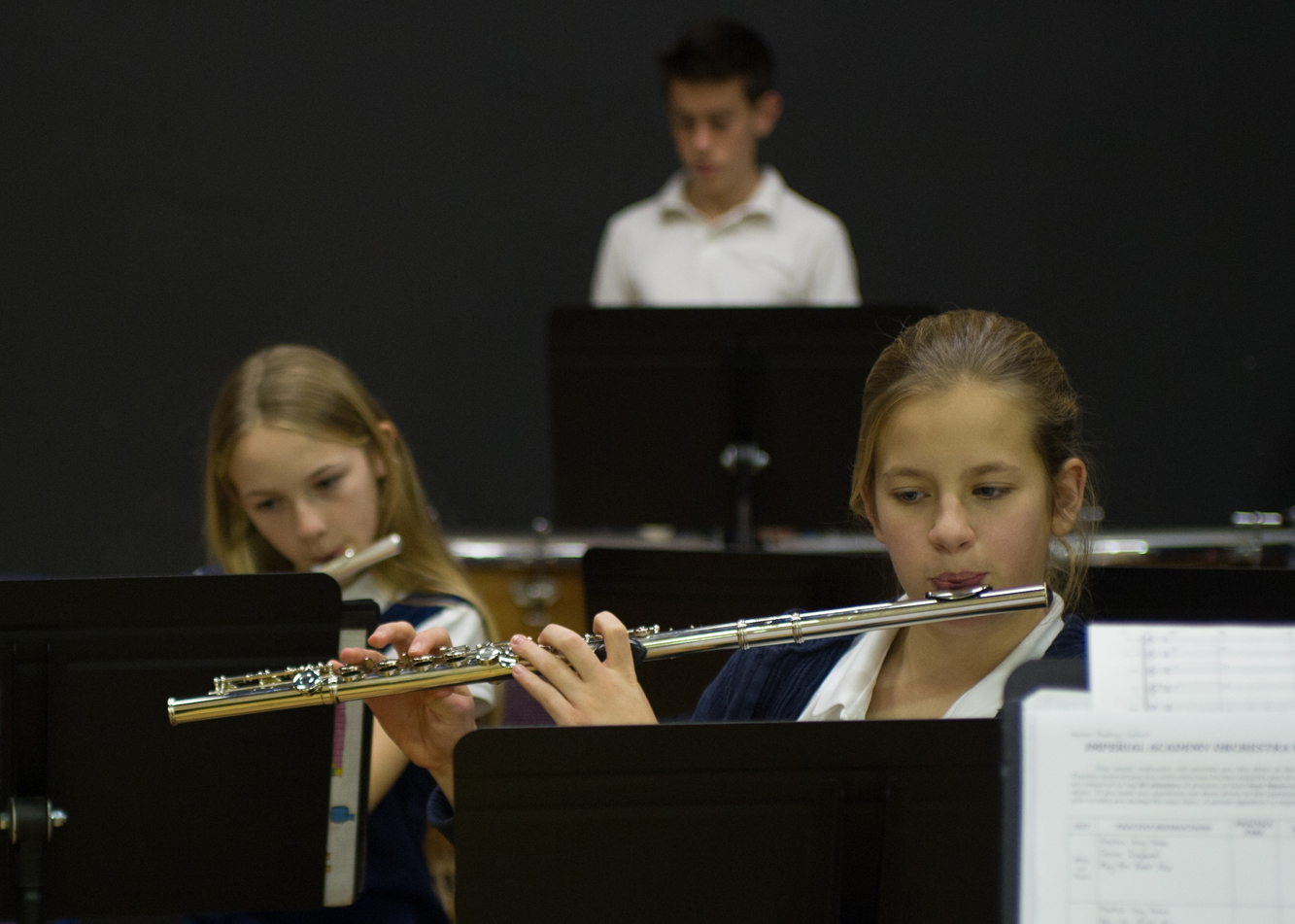
Say your child has a good understanding of rhythm, a good sense of pitch, note-reading, etc (and good practice habits!), and he or she shows a passion for singing, consider his or her physical maturity. Girls usually mature, and finish maturing, sooner than boys. You can look at your daughter and determine based on her physical development and even the sound of her speaking voice whether she is ready to move from her man-made instrument lessons into the study of singing. For a boy, it may be later. None of the music faculty here at AC started formal voice lessons before college. I started as an 18-year-old freshman in college, and though I had a more mature build than when I was 14, it was clear my voice wasn’t fully developed through puberty. Men’s voices settle into full maturity in their 30s and 40s, in fact, but mine was still in the early stages of male development. My teacher was aware of this and took great care to prevent me from hurting myself (though I always wanted to push her limitations).
Remember, the body is the instrument. A teacher, coach, mentor, choir director—if not careful—can actually harm a young singer’s instrument. Or the young singer can be carelessly injured by trying to imitate an older sound.
For pre-teens, voice lessons are completely unnecessary and likely damaging. For teens, voice lessons are to be sought only if the student is relatively accomplished at another instrument and is of near-complete physical maturity to shape their bodies into a fine instrument.
Conclusion
Your children will succeed in any field of education, music especially, the more you as the parent are involved. You are helping them not only to perfect a skill, but also to develop essential life skills such as personal discipline, time management, team building, concentration, focus and overcoming fear.
